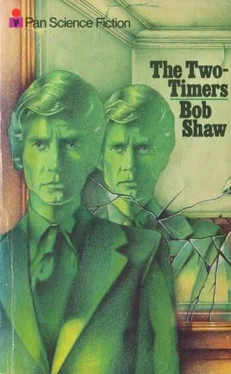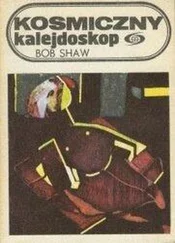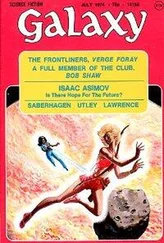Bob Shaw - The Two Timers
Здесь есть возможность читать онлайн «Bob Shaw - The Two Timers» весь текст электронной книги совершенно бесплатно (целиком полную версию без сокращений). В некоторых случаях можно слушать аудио, скачать через торрент в формате fb2 и присутствует краткое содержание. Год выпуска: 1971, Издательство: Pan SF, Жанр: Фантастика и фэнтези, на английском языке. Описание произведения, (предисловие) а так же отзывы посетителей доступны на портале библиотеки ЛибКат.
- Название:The Two Timers
- Автор:
- Издательство:Pan SF
- Жанр:
- Год:1971
- ISBN:нет данных
- Рейтинг книги:5 / 5. Голосов: 1
-
Избранное:Добавить в избранное
- Отзывы:
-
Ваша оценка:
- 100
- 1
- 2
- 3
- 4
- 5
The Two Timers: краткое содержание, описание и аннотация
Предлагаем к чтению аннотацию, описание, краткое содержание или предисловие (зависит от того, что написал сам автор книги «The Two Timers»). Если вы не нашли необходимую информацию о книге — напишите в комментариях, мы постараемся отыскать её.
THE TWO-TIMERS is his third novel, but the first to achieve maior publication.
The Two Timers — читать онлайн бесплатно полную книгу (весь текст) целиком
Ниже представлен текст книги, разбитый по страницам. Система сохранения места последней прочитанной страницы, позволяет с удобством читать онлайн бесплатно книгу «The Two Timers», без необходимости каждый раз заново искать на чём Вы остановились. Поставьте закладку, и сможете в любой момент перейти на страницу, на которой закончили чтение.
Интервал:
Закладка:
Bob Shaw
The Two-Timers
“Knocked me cold: painfully good”
Harlan EllisonPan SF
1971
I
To Breton — trapped in his nexus of boredom, like a seahorse still alive inside a plastic key tab — the sound of the telephone was almost beautiful. He got to his feet and walked across the living room towards the hall.
“Who would that be, darling?” Kate Breton frowned slightly as she spoke, annoyed at the interruption.
Breton ran a mental eye over the quiver full of sarcasms which immediately offered itself, and finally — in deference to their guests — selected one of the least lethal.
“I don’t quite recognize the ring,” he said evenly, noting the sudden faint compression of Kate’s chalk-pink lips. She would remember that one, for discussion, probably at 3:00 a.m. when he was trying to sleep.
“Good old John — still sharp as a razor.” Gordon Palfrey spoke quickly, in his stand-back-and-let-me-be-tactful voice, and Miriam Palfrey smiled her bland Aztec smile beneath eyes like nail heads. The Palfreys were two of his wife’s latest acquisitions and their presence in Breton’s home usually caused a fretful, burning pain in his stomach. Smiling numbly, he closed the living room door behind him and picked up the phone.
“Hello,” he said. “John Breton speaking.”
“We’re calling ourselves John now, are we? It used to be Jack.” The male voice on the wire had a tense, controlled quality about it, as though the speaker was suppressing a strong emotion — fear, perhaps, or triumph.
“Who is this?” Breton tried unsuccessfully to identify the voice, uneasily aware that the phone line was a portal through which anybody anywhere could project himself right into his house. When he opened the channel to alien ideas he was placing himself at a disadvantage unless the caller announced his name, and the idea seemed completely unfair. “Who is this speaking?”
“So you really don’t know. That’s interesting.”
Something about the words gave Breton a vague thrill of alarm. “Look,” he said tersely. “Either state your business or hang up.”
“Don’t get angry, John — I’ll be happy to do both those things. I called simply to make sure you and Kate were at home before I came over there. And now I’ll hang up.”
“Hold on for just one moment,” Breton snapped, aware that he was letting the unknown caller get too far under his skin. “You haven’t said what you think you’re going to get.”
“My wife, of course,” the voice replied pleasantly. “You’ve been living with my wife for almost exactly nine years — and I’m coming to take her back.”
The phone clicked and began to purr blandly in Breton’s ear. He tapped the rest button several times before realizing he was acting out a visual cliché implanted in his mind by old movies — once a caller has broken the connection, jiggling the rest never brings him back. Swearing under his breath, Breton put the phone down and stood beside it undecidedly for several seconds.
The whole thing must be a devious hoax, but who was behind it?
He knew only one confirmed practical joker — Carl Tougher, the geologist in Breton’s engineering consultancy. But when he had last seen Tougher, in the office that afternoon, the geologist had been grimly trying to sort out a snarl-up in a survey the company had undertaken for the siting of a cement works over by Silverstream. Breton had never seen him look more worried, and less like playing games, especially one so full of uneasy subtleties. This conversation had been meaningless — which was not too surprising considering the mentality of phone cranks — but there had been uncomfortable undertones in it as well. For instance, the strangely amused reference to the fact that he no longer called himself Jack. Breton had begun using the formal version of his name for image reasons at the time his business began to develop, but that had been years ago and — he felt a surge of indignation — it was nobody’s concern but his own. All the same, some stubborn corner of his mind had never approved of the name change, and it was almost as if the unknown caller had been able to see right through him and pinpoint the tiny shadow that was his tumor of guilt.
Breton paused at the living room door, realizing he was reacting just the way the phone crank would have wanted — turning the thing over and over in his mind instead of dismissing it. He glanced around the orange-lit paneling of the hall, suddenly wishing he had moved to a bigger and newer place last year as Kate had wanted. He had outgrown this old house, and should have discarded it without sentiment long ago. You have been living with my wife for almost exactly nine years. Breton frowned as he remembered the words — the caller had not been implying he had an earlier marriage to Kate, or anything like that, because she and Breton were married eleven years. But that figure of nine years seemed to mean something, to have multi-layered connections of anxiety, as though some part of his subconscious had drunk in its significance and was waiting apprehensively for the next move.
“For God’s sake!” Breton spoke aloud and smacked his forehead in self-disgust. “I’m nearly as crazy as he is.”
He opened the door and went into the living room. In his absence Kate had dimmed the lights and moved a coffee table over beside Miriam Palfrey. A block of plain white paper and a pen were ready on the table, and Miriam’s stubby, grub-like fingers were already making vague little floating movements over them. Breton groaned silently — so they were going to have a session after all. The Palfreys were newly back from a three-month tour of Europe and all evening bad been so full of the trip that he had begun to think there would be no demonstration. The hope had given him the strength to listen politely to their tourist talk.
“Who was on the phone, darling?”
“I don’t know.” Breton did not want to talk about the call.
“Wrong number?”
“Yes.”
Kate’s eyes searched his face. “But you were there so long. And I thought I heard you shouting.”
“Well,” Breton said impatiently, “let’s say it was the right number, but the wrong people.”
Gordon Palfrey snorted delightedly and the light of interest in Kate’s eyes dwindled away into disappointed coldness, as if Breton had switched off two minute television sets. That was another one for the nightly post mortem in the small hours, when all normal people were asleep and even the curtains of their rooms were breathing steadily in the night breezes. Why, he wondered guiltily, do I hurt Kate in the presence of her friends? But then, why does she hurt me all the time — showing her damned determined disinterest in the business, year in and year out, but giving me a public third degree about a stupid telephone call? He sat down heavily, let his right hand instinctively guide itself to his whiskey glass, and glanced around the room, practicing his benign smile on the Palfreys.
Gordon Palfrey was toying with the square of black velvet, figured with silver stars, which was always draped over his wife’s face during the sessions — but he still wanted to go on talking about Europe. He launched into a long account, undeterred by the theatrical flinches Breton gave each time he heard a statement like “The French have an excellent color sense.” His theme was that the decor of European cottages was invariably in better taste than the work of the best American decorators. Sinking back into the amber prison of boredom, Breton writhed in his armchair, wondering how he would survive the evening, knowing he should have been in the office helping Carl Tougher to straighten out the cement plant survey. With the effortless and imperceptible change of gear that is the mark of the born bore, Palfrey slid onto the subject of an old crofter they had met in Scotland who hand-wove tartans in spite of being totally blind, but Miriam had begun to get into her pre-trance restlessness.
Читать дальшеИнтервал:
Закладка:
Похожие книги на «The Two Timers»
Представляем Вашему вниманию похожие книги на «The Two Timers» списком для выбора. Мы отобрали схожую по названию и смыслу литературу в надежде предоставить читателям больше вариантов отыскать новые, интересные, ещё непрочитанные произведения.
Обсуждение, отзывы о книге «The Two Timers» и просто собственные мнения читателей. Оставьте ваши комментарии, напишите, что Вы думаете о произведении, его смысле или главных героях. Укажите что конкретно понравилось, а что нет, и почему Вы так считаете.












